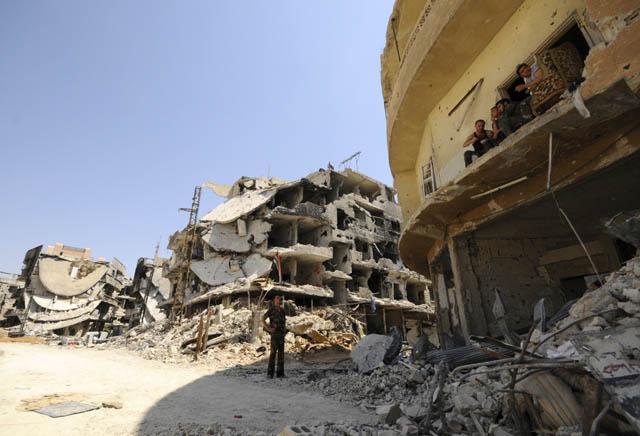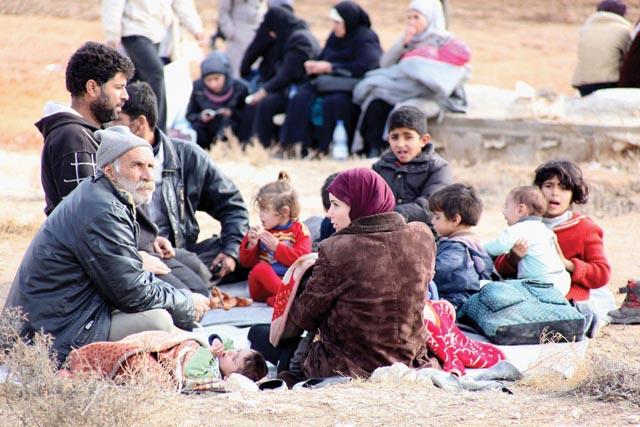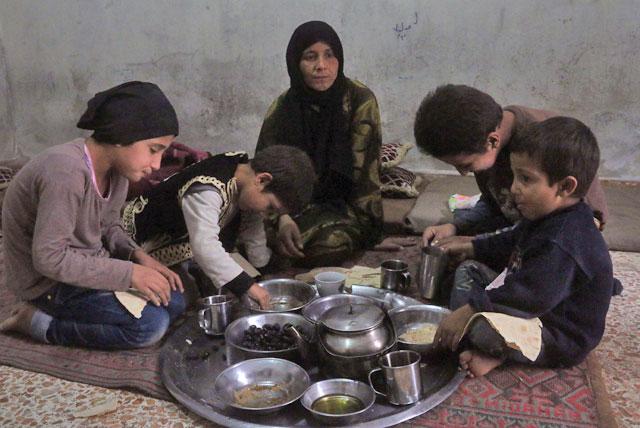You are here
Rebels caught in two-pronged onslaught in north Syria
By AFP - Aug 17,2014 - Last updated at Aug 17,2014

BEIRUT — Western-backed rebels in northern Syria are fighting to survive in the face of advances on their strongholds both by jihadists and government forces, analysts and regime opponents say.
The opposition has sounded the alarm, appealing indirectly to the international community to carry out air strikes on jihadist Islamic State (IS) positions in Syria, like the United States has done in Iraq.
"More than ever the rebellion is caught in a pincer movement between the regime and IS," says Karim Bitar, senior research fellow at the Institute for International and Strategic Relations.
"There is today a real risk it will quickly run low on the oxygen it needs to survive," the Middle East specialist said.
The IS jihadists, who have spread terror in Syria and seized vast swathes of land in Iraq, launched a lightning offensive Wednesday in northern Aleppo province, until now the centre of rebel strength, in order to cut off the rebels' supply route from adjoining Turkey.
The jihadists, who punish their enemies with beheadings, crucifixions and stonings, on Saturday vowed their "determination to free the northern province [Aleppo] and chase out the rebels".
In three days, IS fighters captured 10 villages and neighbourhoods and they are nearing the key rebel-held towns of Marea and Aazaz.
Tipping point
At the same time, the Syrian army is tightening its grip on the northern outskirts of Aleppo city, threatening to surround rebel-held neighbourhoods.
"I think the rebellion in Syria is at a sort of a tipping point now, although the Aleppo situation could take many months to develop," Aron Lund, a specialist on the Syrian rebellion told AFP.
Rebel commander Abdel Jabbar Al Oqaidi admitted: "The situation is very serious."
Oqaidi was a leader of rebel officers who launched the battle of Aleppo in summer 2012, since when the city has been split between the regime and rebels.
Loss of the province "would mean the loss of the main source of manpower" for the rebellion, said Oqaidi.
"If IS succeeds in cutting off the rebels' supplies from Turkey... the rebellion within Syria will be isolated, which is very dangerous," said Samir Nashar, a member of the Western-backed opposition National Coalition.
The opposition has urged Western countries, led by the United States, to intervene in Syria "in the same way they are doing in Iraqi Kurdistan" against IS jihadists.
"The enemy is the same," said Nashar.
Rebel anger
The war in Syria, which has killed more than 170,00 people, began in 2011 with the crushing of peaceful anti-regime protests, provoking an armed revolt against President Bashar Assad.
Later the conflict became more complex with the rise of powerful foreign groups such as Al Nusra Front, the Syrian branch of Al Qaeda, and the extreme jihadists of IS.
The so-called moderate Syrian rebellion was weakened by internal quarrels and by rivalry between its two main sponsors, Saudi Arabia and Qatar.
Despite supporting the rebels, Western powers have refused to arm them in case the weapons fell into jihadist hands.
Syrian rebels and regime opponents have not hidden their bitterness at seeing the United States strike IS in Iraq.
"There is a feeling of anger because for three years Syria has been massacring its people and committing crimes against humanity," Oqaidi said.
"The world stood there with arms folded."
Nashar warned: "The international community's hesitation to carry out strikes in Syria will push many rebels into the arms of IS."
However, analysts play down the prospects of an Iraq-style intervention in Syria.
American strategists believe "the Syrian crisis does not pose a threat to vital US interests," Bitar said.
For Aron Lund, the key question is whether US President Barack Obama's administration wants to contain IS in Iraq or destroy it completely.
"If they're going to do the latter — which they're currently not — you will at some point have to develop that type of aggressive strategy for Syria as well, and it will be hard to do without some form of air strikes."
Related Articles
Syrian rebels and activists have launched a second “revolution” nearly three years into the uprising against President Bashar Assad, this time against a powerful Al Qaeda affiliate accused of brutal abuses.
The US says it has hit a little-known group called "Khorasan" in Syria, but experts and activists argue it actually struck Al Qaeda's affiliate Al Nusra Front, which fights alongside Syrian rebels.
Al Qaeda-linked militants pressed an offensive Monday against Western-backed rebels in northern Syria, closing in on a vital border crossing with Turkey and exposing the weakness of mainstream opposition groups that the US hopes to forge into a fighting force to take on Islamic extremists.



















